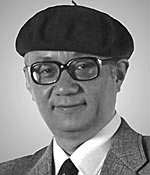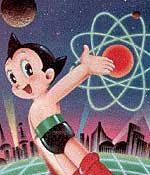
|
But there were still some episodes NBC rejected? FL: There were six episodes that were rejected by NBC. In one of the six there was a doctor doing vivisections and experimenting on live animals. It was rejected out of hand by NBC. There was nothing I could do to save it. If I cut out everything that would be objectionable, if not repulsive, to our culture I'd have wound up with a three-minute show. Another one was about a bachelor who had a pad. Every time the bachelor was in his pad you could see pictures of nude babes on the wall. So no matter what we did we couldn't save that one because there were always babes with their boobs hanging out in the scenes. There was a third one that only has one objectionable scene but it made no sense with that scene removed. There was this criminal running from the police who hides out in a church. But he wants to tip off his gang so to leave a message for his gang he goes up to a statue and on the eyeballs of Christ he scratches a message as to where he is. There isn't a Christian in the world whose hair wouldn't have stood up over that. So that one couldn't be saved. So those three pictures were beyond being saved. But there were three other pictures that had some over the top violence in them. I did save those by shortening some scenes and changing the dialog. How did Tezuka feel about the rejections?
FL: The first time I went to Japan, in 1964, NBC decided to go ahead. But all these rejections were causing financial problems. You start rejecting enough shows and the studio making it starts going broke. The idea from NBC was for me to sit with [Mushi Productions] and explain the cultural differences and tell them how we have no choice but to reject these pictures. So when I went over I was not the most popular kid in town. Tezuka thought I was coming over as a spy for NBC or to do a hatchet job on them. But, when he saw that I was saving pictures, I had already saved three of the six rejected ones, and I started to explain to him what the problems were and asked him to avoid doing these things because they will be rejected, Tezuka started coming over as a friend. No one ever died in our shows but Astro Boy was always saying, "He's dead!" So we saved most of them by saying, "He's unconscious!" or, "Get him to a hospital!" Because I had saved three pictures that were bound for the scrap heap, Tezuka started treating me like a big hero. It had saved them a lot of yen. A big chunk of change. So he and I became good friends and after that they would avoid these things. They wanted me to watch five or six shows and they were upset when I watched them fast-forward and watched them in seven or eight minutes. They had gotten a theater and wanted me to sit down and watch them that way and I'm just burning through them. They thought I wasn't giving them a chance.
Then when I told them I would accept them they were very happy. They were a little hesitant when I stated telling them how I might trim a scene or change the dialog a little. But I also explained why and then Tezuka said that it hardly changed the stories at all and he was very happy. Tezuka was also delighted with the names I gave the characters. In particular he loved the name Mr. Pompous. That name gassed Tezuka. He would hear it and he would just bust up laughing and I never understood why. I asked him at lunch one day why he thought it was so funny but as he tried to explain it he started laughing and I couldn't understand him. Continue to Part II! |
||||||||
|
Astro Boy © Osamu Tezuka / Mushi Productions.
|


